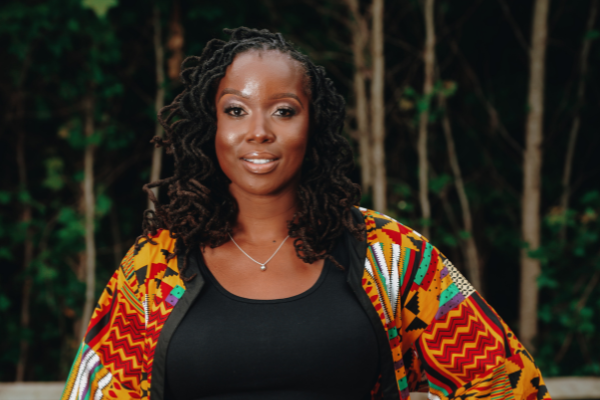
The Sympathy Card Is A Charming Love Letter to Boston Queer Culture
June 27, 2022
The Demisexual’s Little Black Book
July 5, 2022Nearly a decade ago, Dr. LaNail R. Plummer founded Onyx Therapy Group to address mental health issues and disparities in communities, organizations, and for individuals in need. A U.S. Military Veteran, Dr. Plummer has over 15 years of experience working with a multitude of clients, and specializes in the care of young women; the Black community; and members of the LGBTQ+ community.
Since Dr. Plummer started Onyx in 2013, the organization has expanded to eight clinical locations across Maryland, Pennsylvania, and Washington, D.C and has served more than 600 clients. The organization also provides consultation to local and federal government agencies, private businesses, community organizations, and educational institutions.
Tagg chatted with Dr. Plummer to learn more about Onyx and what can be done to address mental health disparities in our communities.
Tagg Magazine: What led you to start Onyx Therapy Group?
Dr. LaNail R. Plummer: There was a need. And while I care about the needs of everyone, I also know that many Black and Brown people, many people in the LGBTQ community, and many children do not feel safe to talk about their needs, don’t have the space to feel safe, and lose hope along the way. So Onyx is more than a mental health company. We are the manifestation of hope for our clients and our communities.
TM: What is the most rewarding part of your job?
LRP: All of it. Every single moment. . . . But in short, it is rewarding to know that clients are having “ah ha” moments, being authentic and showing that to others (when its time and they feel safe), providing employment opportunities for Black and LGBTQ people, using my platform to educate and advocate, and knowing that that we are having an actual impact.
TM: Statistics show that LGBTQ+ people are more likely than their straight and cisgender counterparts to experience a mental health condition, and those numbers are often larger for LGBTQ+ people of color. What can be done on an individual level to address these disparities?
LRP: On an individual level, we can participate in therapy AND do our self-care work. We can read and use our specific workbooks that align with self-awareness and healing. We can read our books and articles that teach us how to address these issues, how to build skills in communication, how to learn about “protective factors” vs. “coping mechanisms.” We can create our chosen families and talk to our family members about our mental health truth. We can reconnect with ourselves through our five senses and reconnect with our spirit through walking, mediation, grace, and spiritual guidance.
TM: What can be done on a societal level to address these disparities?
LRP: While I am personally and professionally invested in addressing this on a societal level, I know that people become overly interested in that part and use it as a distraction to not do their own “work.” So after the individual work is solidified and sustainable, we will naturally change our society because we will be whole and stronger and ready for the struggles that come with challenging society and socialization. But let’s heal ourselves first.
TM: What are some tips you have for LGBTQ+ people of color that are seeking affirming mental health care?
LRP: Interview therapists before you commit to doing services with them. Ask them questions like: Have you worked with people in the LGBTQ community before? Do you know the common cultural language we use? What is your expectation for me to educate you on the LGBTQ community? What education have you done to prepare for your work with me, as an LGBTQ person? How will you address areas of concern or limitations in your learning without expecting me to teach you? What is your position on intersections of race or gender and sexuality? How have you acknowledged and addressed your own biases for people in the LGBTQ community?
For more information and additional resources, please visit Onyx Therapy Group on their website and Instagram.





